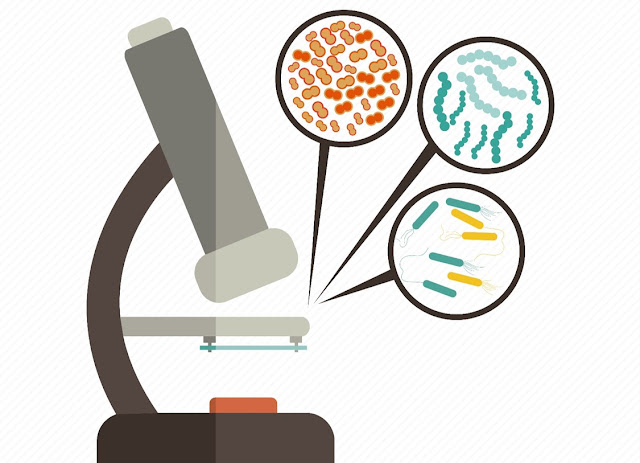The future cure of infectious disease could be in ourselves!
The Howell Foundation hosted its first North County event with key note speaker Janelle Ayers, Ph.D from the Salk Institute, who walked us through the history of the development of antibiotic resistance and how we fight disease in the twenty first century. She is currently researching the pathways to winning the war against antibiotic resistance in bacterial infections.
In the continuous fight to beat infectious disease, history has shown us that the use of antibiotics will kill the infection, along with the healthy bacteria that might keep us from fighting the infection. Bacteria have genetic mutations that are resistant to antibiotics, and we, in turn, just keep on developing antibiotics to rid new strains of bacteria. We are running out of of options in antibiotic development to beat infectious disease. And the cycle continues...
 So the question still remains: will our bodies be able to fight infectious disease on their own? Her answer is YES! For Dr. Ayers, it's all about how we SURVIVE bacterial infections -- vs. how do we FIGHT them. "Treatment of infectious disease in the US relies on antibiotics for successful treatment", comments Ayers.
So the question still remains: will our bodies be able to fight infectious disease on their own? Her answer is YES! For Dr. Ayers, it's all about how we SURVIVE bacterial infections -- vs. how do we FIGHT them. "Treatment of infectious disease in the US relies on antibiotics for successful treatment", comments Ayers.Her research is based on history. She referenced the treatment of tuberculosis at the beginning of the 20th century, when the 'sanitarium movement' sought to treat the disease with the basics: complete rest, good nutrition and plenty of sun. Granted this treatment lasted for a year, but it does shed light on the fact that in today's world a patient with TB would be able to get cured without the use of antibiotics!
When we get an infection, our immune system is capable of recognizing it, engaging a series of interactions to fight against it; sometimes damaging our organs. The antibiotic will kill the pathogen creating the infection, but will not address the potential organ damage the infection creates. Dr. Ayers' theory centers around strengthening the pathology of the organ(s) during the infection and harness them for therapeutic purposes; perhaps develop drugs that can address the physiological damage of an infectious disease. "Our bodies encode a defense system to fight disease. By understanding how it works and what genes are involved in creating this 'defense system', we can leverage research results to treat both infectious and non-infectious disease."
Enter the human microbiome and the trillions of microbes and bacterial species that live in our bodies. Research shows that the microbiome universe is responsible for optimal physiological function and health. A healthy microbiome will have a positive impact in both our immune and metabolic systems, as well as intestinal, brain, and lung function. On the contrary, changes in the microbiome have been associated with diseases such as autism, asthma, cancer, diabetes, and arthritis. Our microbiome IS responsible for turning on these 'damage control' mechanisms in our bodies to ensure health. The challenge continues to be the separation of microbes from healthy and sick bodies to learn which microbes are protective against disease, and to potentially utilize isolated microbes for drug design.
Dr. Ayres's lab put the theory to the test. After inserting bacterial pneumonia-induced pathogens in mice, it was discovered that although antibiotics had taken care of the infections, the muscle-wasting effect of the infection was still present. Furthermore, when introducing E-coli bacterium into the infected body, its own 'defense mechanism' was able to heal the infected mice and minimized the muscle wasting effect of the infection.
Although the results of this approach were highly positive, some additional approaches can sometimes be... well, plain and 'unsophisticated' for some. Dr. Ayers is researching 'poop' as medicine to understand the role microbes play as damage control mechanisms in hopes to develop a preventive approach to infectious disease. It is not the first time we have heard about this before. In 2015, the Howell Foundation hosted Dr. Highlander, who was gracious enough to introduce novel treatment of bacterial disease through the use of poop pills and fecal transplants during lunch!
But going back the Salk Institute and Dr. Ayers' research lab, ongoing efforts to treat infectious disease with the use of microbes include pre-clinical trials with animals that suffer from insulin resistance, sepsis, salmonella, poor cardiac function, pneumonia and inflammatory bowel disease, just to mention a few. The conclusion is concise: the way to fight infectious disease and the overuse of antibiotics is through our own microbes. A healthy biome is the cornerstone of our health!
###
About the Doris A. Howell Foundation:
The Doris A. Howell Foundation for Women’s Health Research is committed to keeping the women we love healthy, advancing women’s health through research and educating women to be catalysts for improving family health in the community.
The organization does so by funding scholarships to students researching issues affecting women’s health; providing a forum for medical experts, scientists, doctors, and researchers to convey timely information on topics relevant to women’s health and the health of their families through its Lecture and Evening Series, and by funding research initiatives that improve the health of under-served women and increase awareness and advocacy in the community.
###




Comments
Post a Comment